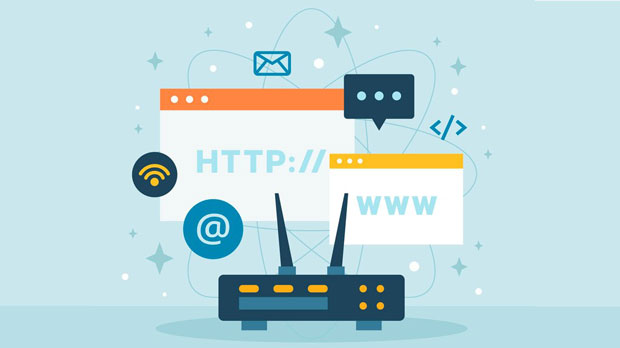static proxies have become indispensable tools for businesses and individuals that rely on consistent and reliable access to the internet, especially in sectors like data scraping, SEO optimization, and security testing. Among the various types of proxies, static proxies stand out due to their long-term stability. This article delves into the comparative analysis of two popular static proxy services: 711Proxy and PYPROXY. We will explore their stability over extended use, highlighting key factors such as performance consistency, reliability, and the impact of long-term use on service quality. Introduction to Static Proxies and Their ImportanceStatic proxies, also known as dedicated proxies, are IP addresses that remain fixed and do not change over time. They are particularly valuable for activities that require a consistent and reliable connection, such as web scraping, social media management, and online security testing. Unlike dynamic proxies, which frequently change their IP addresses, static proxies provide users with a stable and persistent IP address for an extended period.For businesses that rely on large-scale data collection or online testing, the use of stable and reliable proxies is crucial. Both 711Proxy and PyProxy offer static proxies, but their stability over long-term use varies. Understanding the key differences between these two services can help businesses make an informed choice based on their specific needs.Performance Consistency: 711Proxy vs PyProxyOne of the primary concerns when using static proxies for long-term projects is performance consistency. Over time, proxies can experience slowdowns, connection drops, or even blockages. Therefore, it is essential to evaluate the consistency of proxy performance, particularly when handling large volumes of data.711Proxy:711Proxy is known for its robust performance, with a reputation for maintaining steady speeds and low latency. However, some users have reported occasional drops in connection speed after prolonged use. These speed fluctuations, while not frequent, can impact tasks that require real-time data fetching or continuous access to websites.PyProxy:PyProxy, on the other hand, is often praised for its ability to maintain stable speeds even with long-term usage. Users report fewer instances of speed drops or connection issues compared to 711Proxy. However, this stability is not universal, as some users have experienced delays during peak traffic hours or in regions with less optimal infrastructure.In general, both services perform well for long-term use, but PyProxy tends to have a slight edge in terms of maintaining consistent speeds over extended periods.Reliability and Uptime: A Critical Factor for Static ProxiesReliability is a key aspect of static proxy usage. Proxies that frequently go down or experience long periods of downtime can severely disrupt business operations. To evaluate the reliability of 711Proxy and PyProxy, we must consider their uptime statistics and the support available for resolving issues.711Proxy:711Proxy offers high reliability, but occasional server outages or network issues can result in brief downtimes. These outages tend to be resolved quickly, but for users relying on constant availability, this may still pose a challenge. The service does offer good customer support, with dedicated staff ready to address technical issues.PyProxy:PyProxy is generally regarded as one of the more reliable proxy providers, with minimal downtime reported over long-term usage. This service tends to have better infrastructure, ensuring that proxies stay online consistently. However, like any service, there are occasional outages, particularly during maintenance periods. Nevertheless, their customer service team is responsive, providing quick resolutions.Overall, both services have a strong reputation for reliability, but PyProxy edges out 711Proxy in terms of overall uptime and consistency.Impact of Long-Term Use on Static Proxy ServicesWhen choosing between 711Proxy and PyProxy for long-term use, one of the most important factors to consider is how the proxy service handles prolonged use. Over time, certain issues may arise, such as IP address reputation problems, blocked or throttled connections, or increased latency.711Proxy:As with any proxy service, long-term use of 711Proxy can lead to potential issues with IP address reputation. If many users are accessing the same IP or if the IP has been flagged by certain websites, it can result in slower speeds or blockages. In such cases, 711Proxy offers automatic IP rotation to help mitigate the impact, but this can be less effective for users who need a fixed IP address for a prolonged period.PyProxy:PyProxy also faces similar issues with IP address reputation, especially if the service is used for scraping or accessing sensitive websites. However, their IP pool is larger, and the service provides more robust options for managing IP reputation, making it a better choice for long-term stability. Additionally, PyProxy offers tools to help users rotate their IPs or switch to fresh proxies to avoid blocks.Despite these challenges, both services provide solid long-term support. PyProxy, however, is better equipped to handle the potential downsides of long-term proxy use.Security and Privacy ConcernsSecurity and privacy are paramount when using proxies, particularly for businesses that deal with sensitive data or require anonymity. A compromised proxy can lead to data leaks, security breaches, or unauthorized access to sensitive information.711Proxy:711Proxy takes security seriously and employs encryption methods to ensure that user data remains safe. However, like any service, there is always the potential for vulnerabilities. Users are advised to take additional security measures, such as using HTTPS and securing their endpoints.PyProxy:PyProxy also prioritizes security and offers advanced features like IP whitelisting and SSL encryption to protect user data. Additionally, PyProxy ensures that their proxies are not easily identifiable by websites, making them an excellent choice for users who need an extra layer of protection.Both services provide strong security measures, but PyProxy is often seen as the more secure option due to its focus on protecting users from IP identification and blocking.Conclusion: Which Proxy Service is Better for Long-Term Use?Both 711Proxy and PyProxy offer reliable static proxies for long-term use, but each has its strengths and weaknesses. In terms of performance consistency, PyProxy generally outperforms 711Proxy, especially over extended periods. The reliability and uptime of PyProxy are also superior, making it the better choice for businesses that require continuous access to the internet.In terms of long-term use, 711Proxy may still be a viable option for users who need occasional proxy rotation but don’t require constant availability. However, for those seeking stability and minimal downtime, PyProxy stands out as the more reliable option.When considering security and privacy, both services offer solid protections, but PyProxy's advanced security features make it a better fit for users who prioritize anonymity and data protection.Ultimately, the choice between 711Proxy and PyProxy depends on the specific needs of the user. For businesses looking for a stable, high-performance proxy service with robust customer support and minimal downtime, PyProxy is likely the better option for long-term use.
Sep 25, 2025



































































